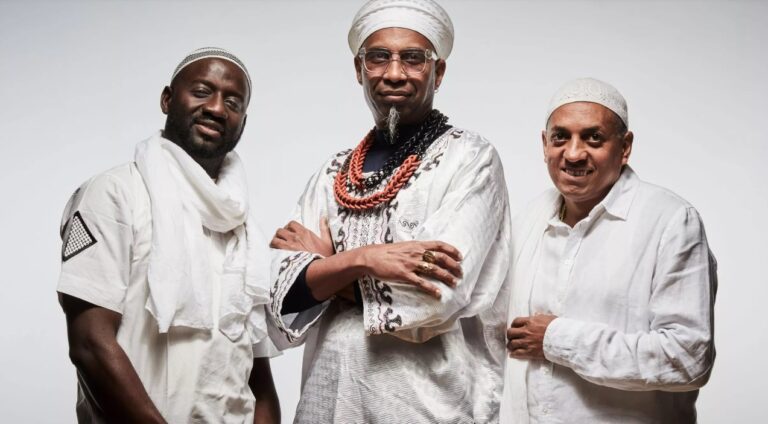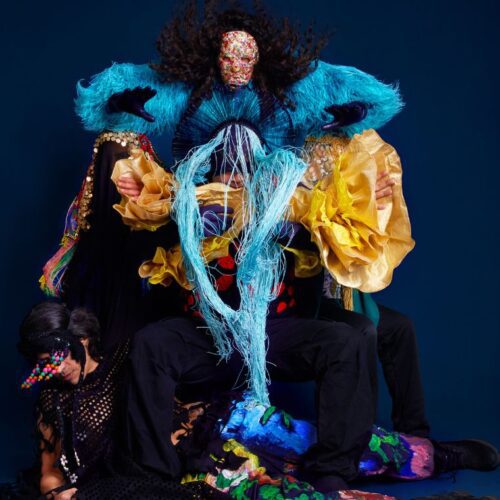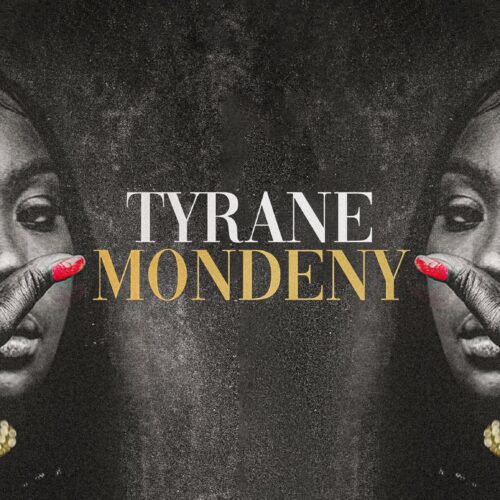Additional Information
Great Cuban pianist, composer and improviser Omar Sosa, and Senegalese kora master and singer Seckou Keita are coming together for a first time in Montreal with their Suba Trio, including Venezuelan percussionist Gustavo Ovalles. They will perform on May 6 and 7 at Le National.
They actually have a strong repertoire of two albums: Transparent Water (2017) and Suba (2021). Through this music, they share their specific cultures: West African mandika music, Afro-Cuban music and Afro-Venezuelan music.
Joined in Europe before their tour, they talk generously about their artistic relationship based on a highly creative fusion of heritages between African and Afro-descendent virtuosos.
PAN M 360: Hello Omar, it’s great to have one more conversation with you. Are you still based in Barcelona?
OMAR SOSA: Well, it’s a good question. I have a studio here in Barcelona because when I am in Europe I basically stay here. Also, I have my two kids here in Barcelona so I must have a place to welcome them.
PAN M 360: This time, with this Suba project, you’re working with you know the Great West African tradition, the great mandingo tradition. So, how come have you been there after all those experiments you’ve done before?
OMAR SOSA: It is important for a creative person to go with the flow of the river. God put you in places you never expect but these places are always amazing, when the love is mutual, and this is basically what I think happened with Seckou. We’ve been working together for 12 years, we’ve recorded 2 albums, Transparent Water and the recent Suba. Basically, it’s a hymn to people who are looking for love for peace, for unity, from this idea of being together in one in one world, when everything is in one way or another going in the same direction.
PAN M 360: And what is that direction?
OMAR SOSA: We are so glad to be celebrating together our roots, and our tradition in a contemporary way, but at the same time, respect what the elders already paid to us and for us. And we are here because somebody was before us. And this is basically in one way, while we like to get present in these two points. Afro-Cuban tradition, Mandinka tradition, and South American, African tradition, because we also have in this project a percussion player from Venezuela, Gustavo Vyas who plays Afro-Venezuelan percussion. And some of this information, a lot of people don’t know. Quitiplás is a bamboo drum ensemble that is used to perform music. So for a lot of people, this is a new form. For other people, it’s continuity. Then we put different instruments together around the kora. Seckou plays it in the traditional style of 22 strings kora, but he also plays with a two necks kora, so 44 strings.
PAN M 360: And what brings you together?
OMAR SOSA : Reason number one is respect. We respect each other, so we listen carefully to each other. Reason number two is that we try to be free to express what goes through us. And this is something I really like. We have a structure with our sounds, but we have a moment when we fly because why I consider myself a jazz musician is because of the philosophy, and I try to keep this philosophy inside every piece of music I play. Freedom. I must feel free to even change the structure at some point if I feel this is the way for me to be free, so If I take Mandinka expression, I must feel free to change what I want.
PAN M 360: Seckou Keita joins us at the moment, then let’s ask him about the importance of freedom in the improvisation.
SECKOU KEITA: Indeed, it is open in most cases. There are of course arrangements in our music. But of course, there is also the freedom to express our musical conversation. Since my first meeting with Oma, we haven’t talked. We didn’t know each other at first but our music was speaking for us. So therefore we carry on the same journey. So we keep that open because it is important for us to come together and chat musically with an open spirit. So what we do together it’s beyond our specific tradition.
PAN M 360: Since your first recording, the music language between you guys has probably changed through your performances. So it’s an ongoing process of renewal, isn’t it?
OMAR SOSA: Indeed it changes, it evolves. We already hear each other before we play and we reach the same place sometimes without rehearsing. This is also because we are in a team with no pressure, where artists think that this life is too short to complain. Life is to short to say “Oh, you did this. I did this. Okay, my God, this C minor is not the right C minor.” So it is better for us to say let’s play what the spirits inspire us to play.
PAN M 360: Seckou, from what West African area are you from?
SECKOU KEITA: I am from Sénégal, more precisely from the Casamance area. My culture is Mandinka.
PAN M 360: So you moved to the UK where you recorded wonderful music with harpist Catrin Finch, among other projects. This is not usual to musicians that come from Sénégal, Guinée, Mali, or Ivory Coast, who mostly emigrate to France, the United States, Spain, or even Québec.
SECKOU KEITA : True. So I always say that England chose me. And I met Omar Sosa in England through a mutual friend, Mark Gilmour, an American artist based in the UK. So sometimes different mixes happen. I know some Gambian musicians who live in France, for example. Anyways, those colonial differences are not what Africa was. My own culture can be found in many west African countries so we can meet somewhere else than only French countries in Europe. History is not always what we think. I like when Omar says that Cuba is a province of Africa!
OMAR SOSA: But now the real thing is to bring our cultures together while we feel free to express what we like to say musically. So Suba, our most recent project, is about this.
SECKOU KEITA: In Mandinka, Suba means sunrise, early morning when the sun comes up. So basically, our recent album is about a new morning, about a new world, a new amazing journey, and a new beginning. We thought about it during the pandemic so we imagined this new beginning involving different cultures.
PAN M 360: This trio is evolving. So do you want to maintain this same format or maybe make it different in the near future? Or think about other projects? For example, chamber music could fit very well with this trio.
SECKOU KEITA : You’re right. I mean, this trio music can become relevant for a chamber orchestra or even a symphonic one. I recorded my music with the BBC Symphony Orchestra of 62 people. It’s called Africa Rhapsody and it will be released on May 26th. So yeah! Because we actually have experienced this super trio with Gustavo, it would be another element really interesting for the diversity of our music. We could take it somewhere else!























